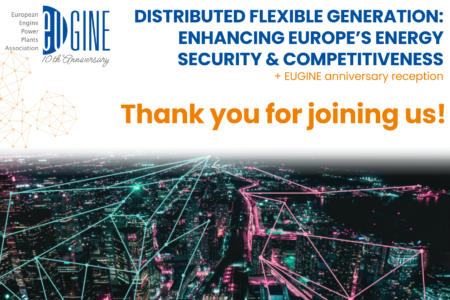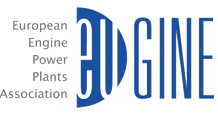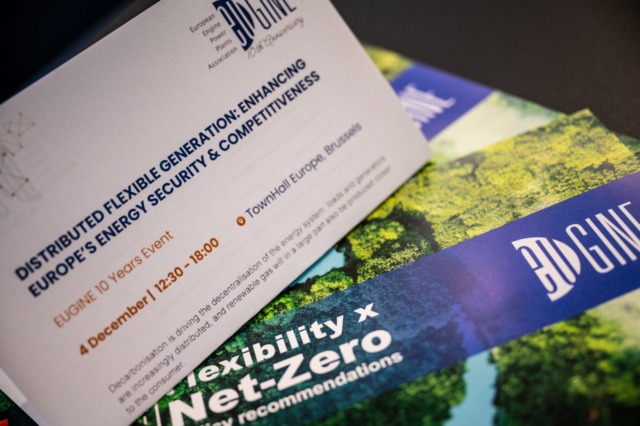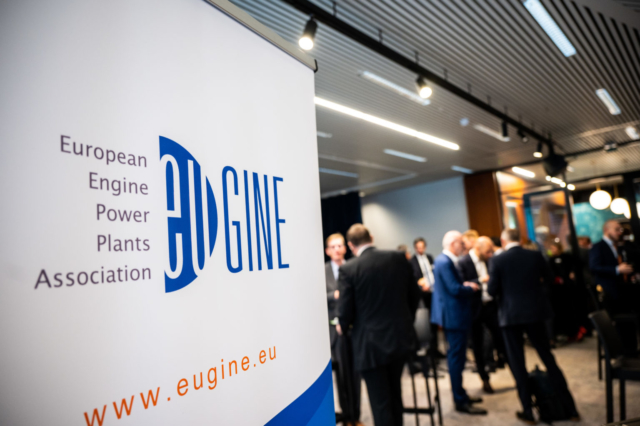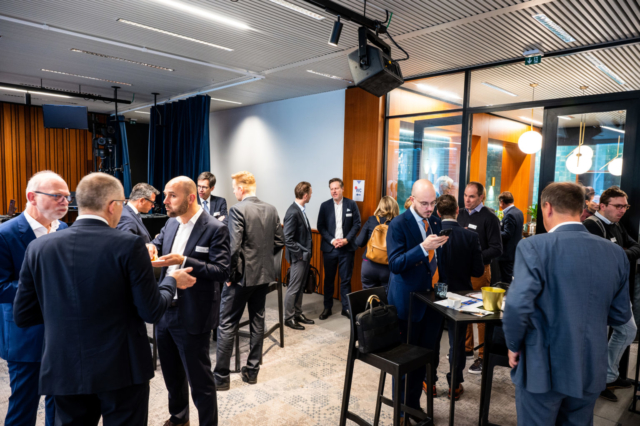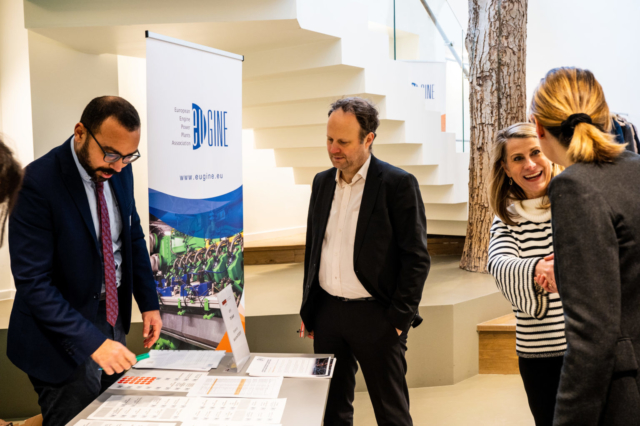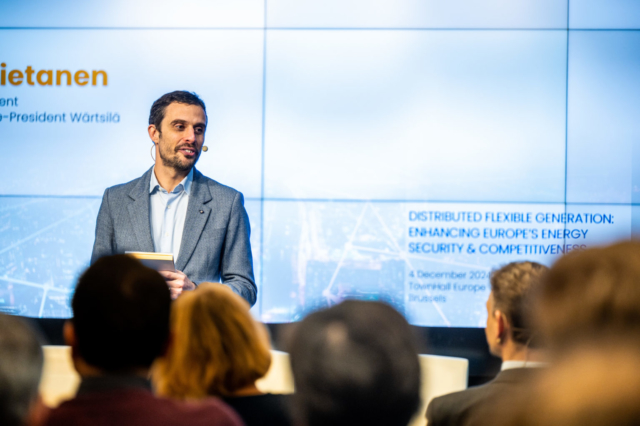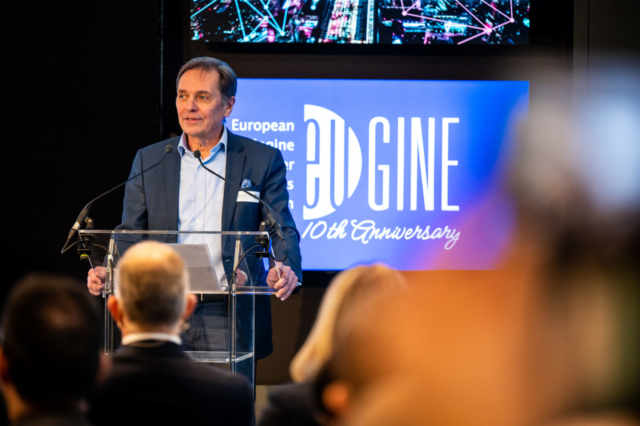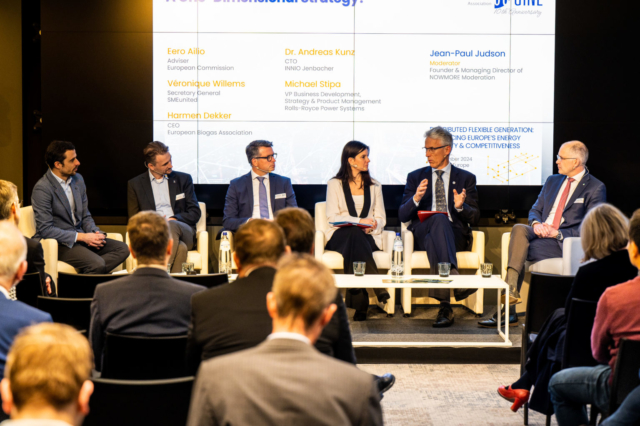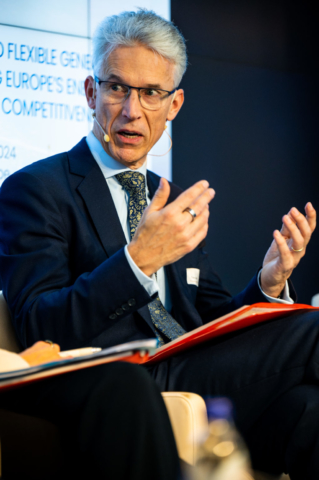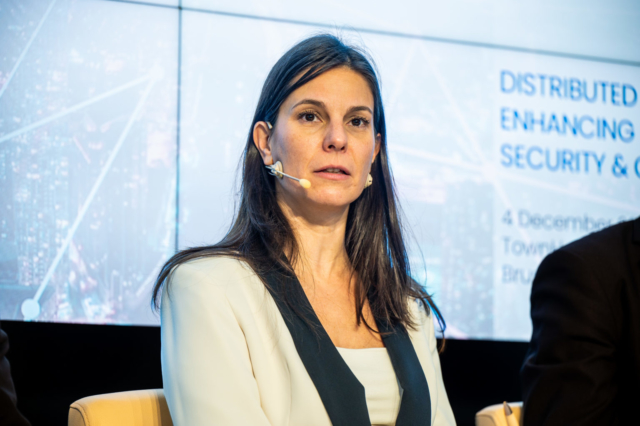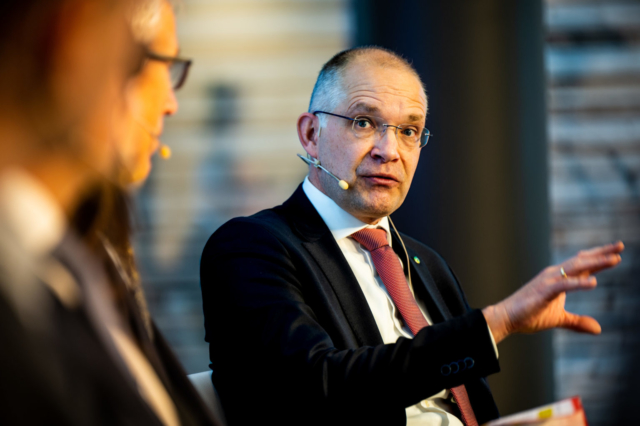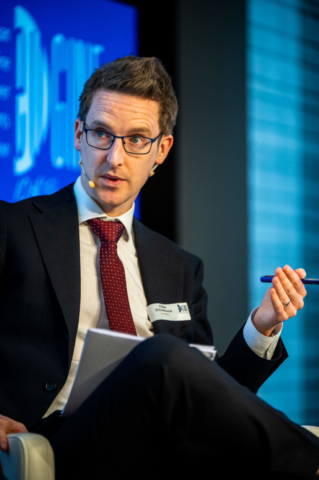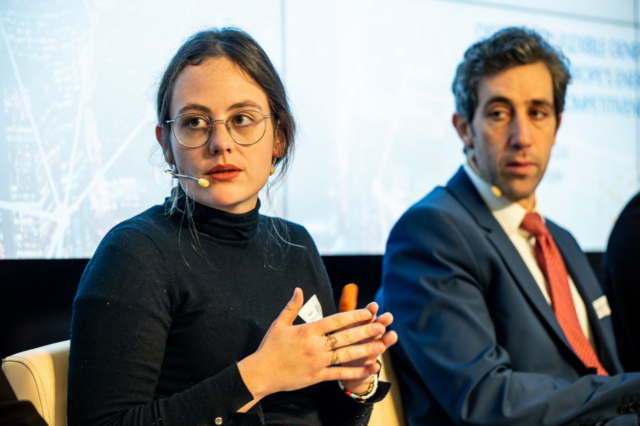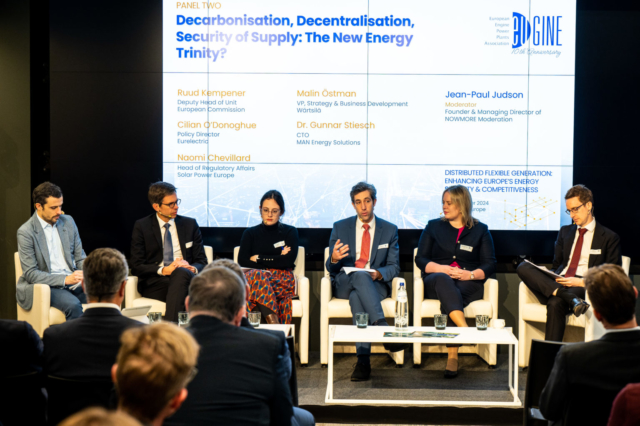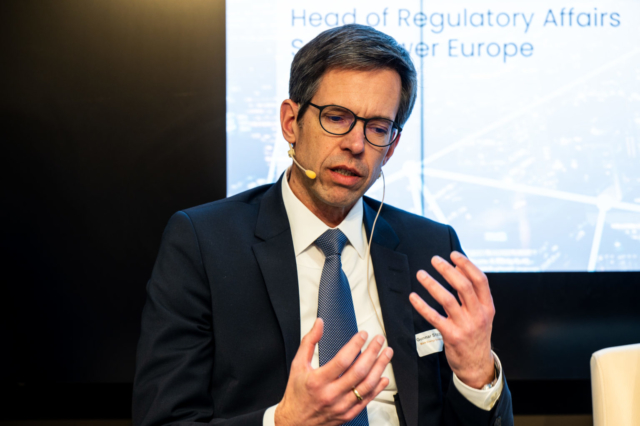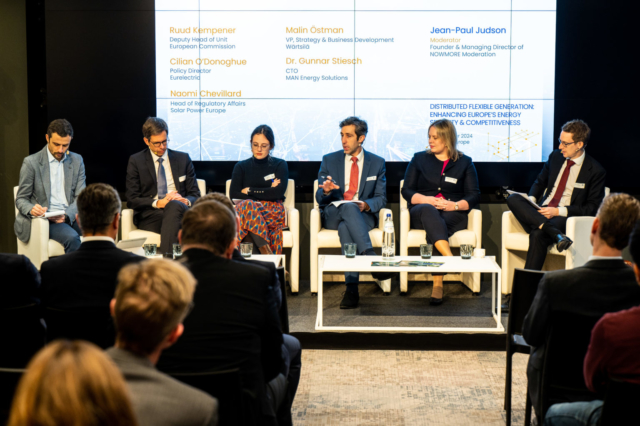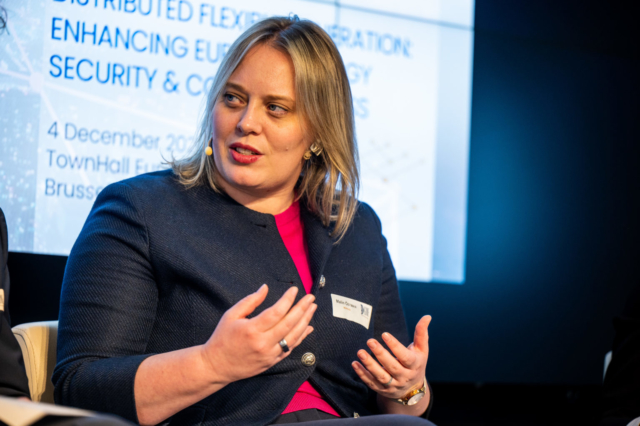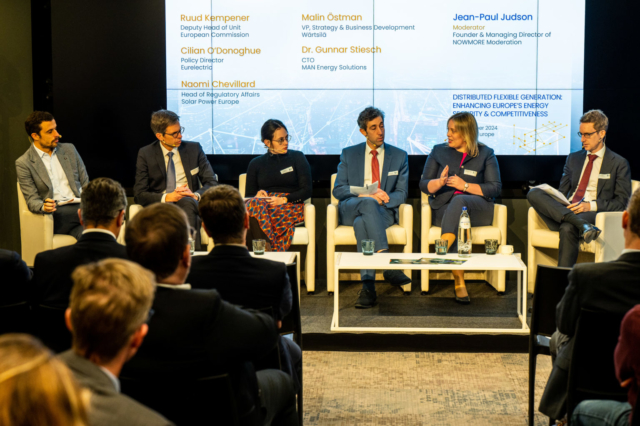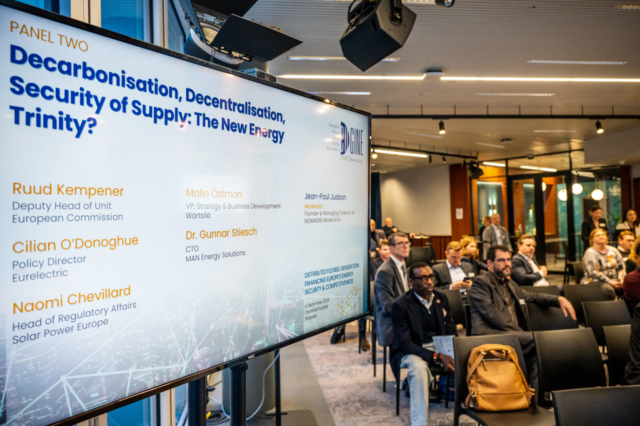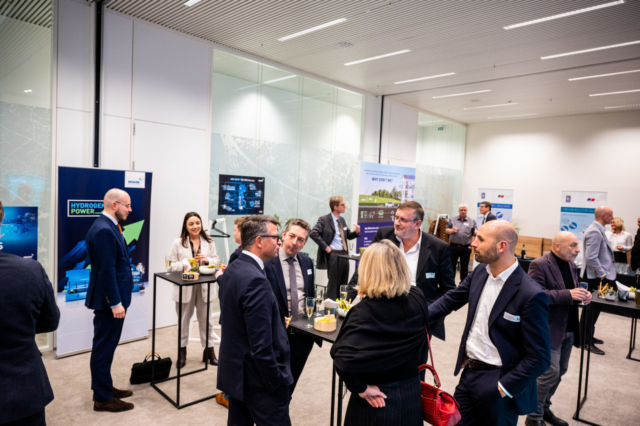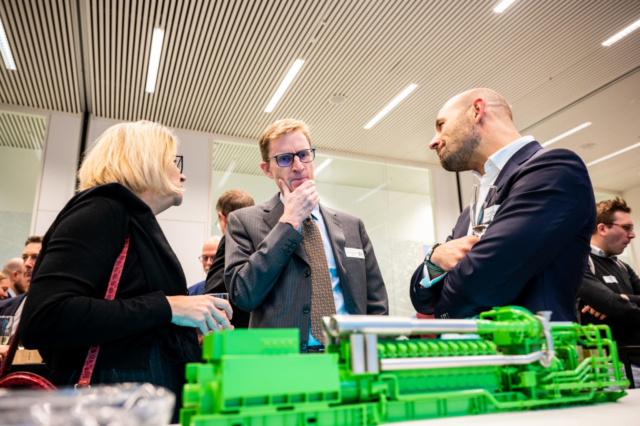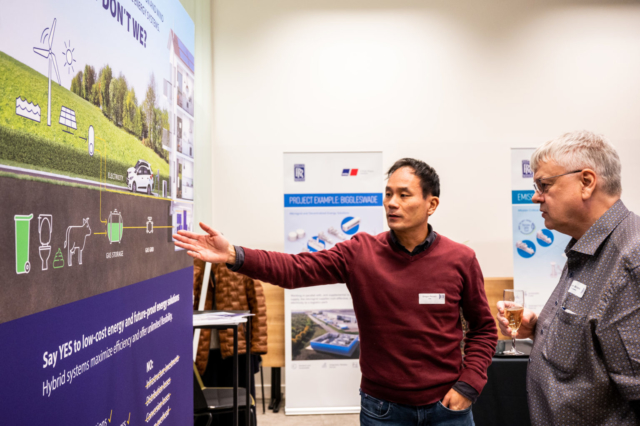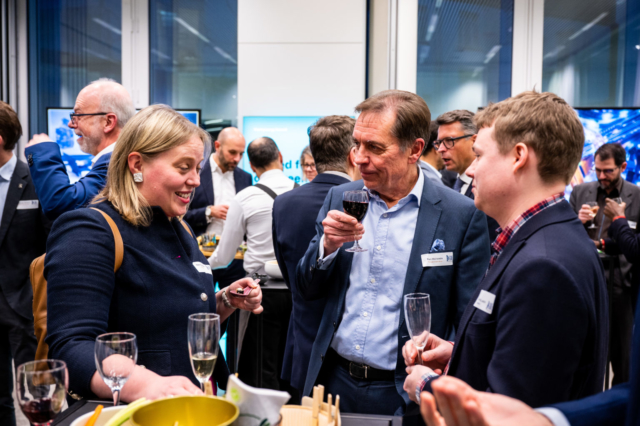Distributed Flexible Generation: Enhancing Europe’s Energy Security & Competitiveness
13 December 2024
In 2024, EUGINE celebrates its 10th year of existence. Created in 2014 under the motto “flexible energy” to raise awareness on the advantages of engine power plants, our association has since then evolved to a recognised partner in the EU energy policy circles. On the 4th of December we organised a high-level event to analyse how the distributed, flexible generation provided by engine power plants will help reinforce energy security and competitiveness in the years ahead.
Our key takeaways
- Take a holistic approach to the energy transition: Achieving a cost-effective energy transition demands both a more granular and a system approach that factors in all energy cost components.
- Focus on Europe’s strengths: Europe’s technological leadership and capacity to innovate hold the tools for Europe to lead in competitive and sustainable energy solutions.
- Build resilience through diversity: Complementing electricity systems with green molecules, heat, and storage solutions is essential for a secure energy future.
- Put a value on security : Strong governance and the right political signals are crucial to safeguard markets and consumers against unforeseen yet probable events.
Read the event summary
Competitiveness and Energy Costs: A One-Dimensional Strategy?
Today, engine power plants support businesses, public services and households with energy efficient and clean gas solutions. The gas energy price crisis has again put energy prices and the linked competitiveness issues great on the European agenda.
This first panel discussion examined whether direct electrification is the best way to reduce costs or whether other avenues need to be pursued too.
The European Union strategy is to electrify whenever possible and use green gases for when that is not possible. To make the most out of it, the focus also needs to be on the efficient use of green gases.
In 2022, SMEs saw a significant rise in energy costs, and many started investing in green and efficient solutions. To keep that momentum, policy needs to respect the long investment timeframes of companies and provide independent assistance and consulting.
While challenges lie ahead, panellists agreed that Europe has valuable resources that sometimes go unnoticed. Europe’s know-how, existing leadership and capacity to innovate should be tapped into. Europe’s renewable gas potential is large, and, in some areas of Europe, energy prices are already competitive.
A comprehensive approach is needed to achieve cost-effective energy transitions. This includes both a granular analysis of system needs and a system-wide perspective that considers all energy cost components, including grid costs.
As a transition to the second panel discussion, panellists convened that security of supply and reliability will also be critical factors in reaching competitiveness.
With:
- Eero Ailio, Adviser Energy transition and local governance, European Commission
- Véronique Willems, Secretary General, SMEunited
- Harmen Dekker, CEO, European Biogas Association
- Dr. Andreas Kunz, CTO, INNIO Jenbacher
- Michael Stipa, Vice President Business Development, Strategy and Product Management, Rolls-Royce Power Systems
Decarbonisation, Decentralisation, Security of Supply: The New Energy Trinity?
The 2022 war and subsequent energy crisis highlighted the risks to Europe’s energy security. In response, Europe adopted a forward-looking strategy, accelerating the transition with unprecedented growth in renewables and diversifying energy sources and carriers.
A decentralised, decarbonised energy system is more resilient but presents challenges, such as cybersecurity risks, more complex governance structures, and the need for decentralised backup systems to address seasonal weather variations.
Panellists convened that, to enhance resilience, electricity systems must be complemented by other energy carriers and storage solutions, including green molecules and heat.
Looking ahead, speakers agreed that while markets are prepared to offer solutions, they require appropriate governance and policy signals. Public authorities must play a role in protecting vulnerable groups and ensuring the value of supply security is recognised. Only then can markets and consumers be safeguarded against unforeseen yet probable events.
With:
- Ruud Kempener, Deputy Head of Unit, Energy Security and Safety, European Commission
- Cillian O’Donoghue, Policy Director, Eurelectric
- Naomi Chevillard, Head of Regulatory Affairs, Solar Power Europe
- Malin Östman, Vice President, Strategy and Business Development, Wärtsilä
- Dr Gunnar Stiesch, CTO, MAN Energy Solutions
Closing Remarks
In his closing remarks, Kari Hietanen, President of EUGINE, thanked the panellists for their insights and emphasised that Europe does not need to choose between security and competitiveness. He concluded that engine power plants are a proven yet future-ready technology capable of contributing effectively to both priorities.
